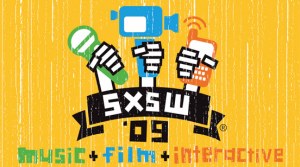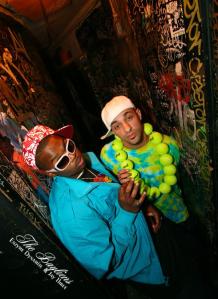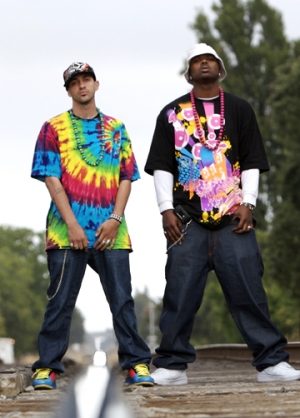DIY music mashups are becoming increasingly prevalent as more and more musicians see the value of interacting with their fans. Luckily, as DJ Earworm points out, “the music industry is beginning to see the benefit of increased exposure through releasing stems directly to the public”.
Remixing used to be largely the territory of DJs, producers and other “sonic manipulators”, who would typically overlay the a cappella from one song on top of another or sometimes add their own sounds. But now fans are embracing the concept. We owe a big thank you to Radiohead for popularizing the fan remix concept (again) and to all the other musicians who have begun to release stems through various mediums. More and more artists, both underground and mainstream, are warming up to the idea.
Increasingly, average people don’t just want to passively be entertained by media anymore. They want to experience it. Whether it’s pictures, audio, or video, people are manipulating and mashing up media to their hearts’ content. YouTube is a great example. People want to be seen and heard and be free to exercise their creativity in new ways. (Sometimes leaving the rest of us scratching our heads and wondering why they would possibly post a video of themselves doing that… but hey, they should still have that freedom and ideally the tools to do so.)
One has to give some credit to Girl Talk as well. Through his enthusiastic use of unauthorized samples, Girl Talk has been a pioneer in the mashup revolution. While legal remixing is certainly different than the bootleg subculture that grew around unauthorized sampling, these two sides of remix culture seem to be slowly converging. As artists and the powers that be in the music industry begin to embrace the perspective that when someone samples your music it’s not stealing, but rather free promotion, the boundaries begin to melt away. And thus, music evolves.
In an article delving into some mashup history and the growing mashup revolution, Roberta Cruger says:
“In DIY culture, consumers are the producers, owning the tools of production — a laptop instead of guitar, bass and drums. The bedroom is the studio and factory machinery moves out of the nightclub onto the Internet for millions to access. The media monopolies are fighting back, but with the airwaves gobbled up by conglomerates, homespun mash-ups may be the people’s digital antidote.”
When a need becomes apparent (in this case, the desire of fans to remix), naturally the solutions begin to surface as well. Like the MixMatchMusic Remix Wizard, which allows artists (e.g. The Bayliens) to host their own remix promotions easily. As remix culture continues to grow, it’ll be fascinating to see what kinds of creative fusions and deconstructions happen. New genres will evolve, the industry will continue to take unpredictable twists and turns, and who knows what other clever things will surface as the tools and the freedom to explore and create are placed in the hands of music consumers.
For example, someone took the Remix Wizard (created to facilitate music remixes) and set up a page called “Help Sarah Make Sense” where you can rearrange Sarah’s words (for better or for worse). Pretty funny actually. Go make a remix!









